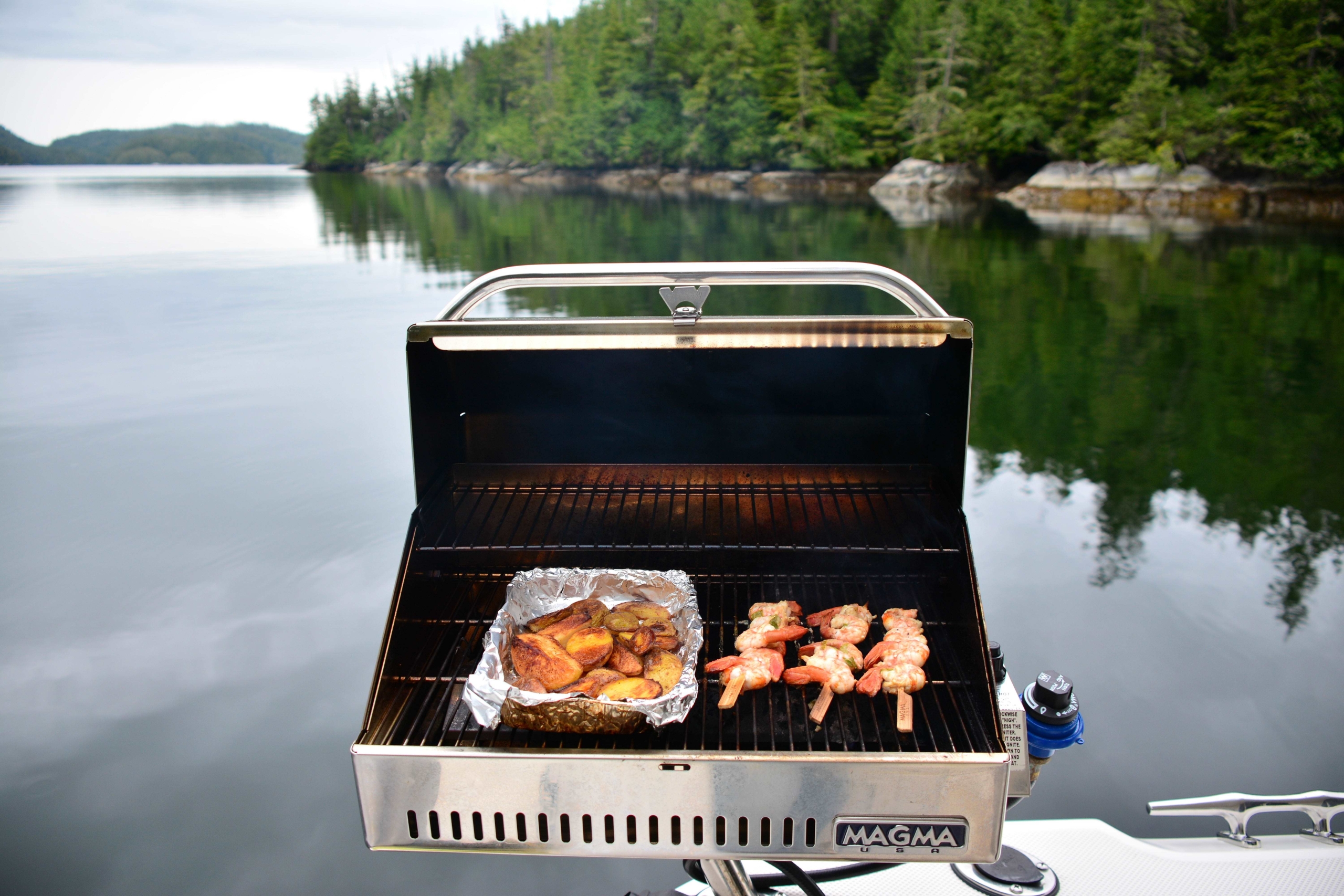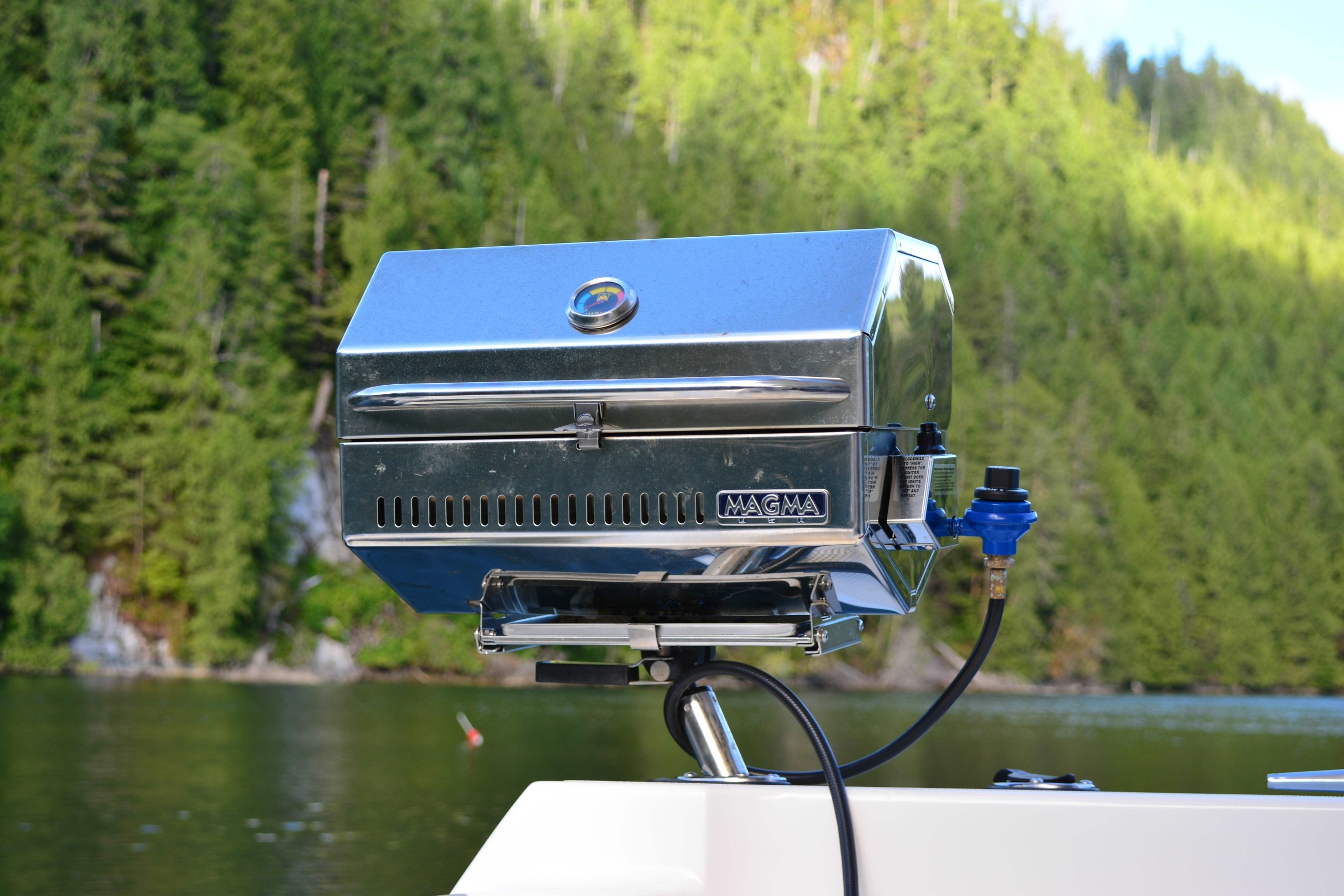What Qualities to Look for in a Boat Grill
20th October 2025
Nothing beats barbequing on the water. Whether you’re anchored in a quiet cove off Vancouver Island or rafted with friends in Howe Sound, a boat grill can take your day afloat to the next level. But unlike backyard barbeques, grills for boats must be purpose-built to withstand the marine environment and operate safely in tight, moving spaces. Salt air, wind, water, limited deck space, and constant motion all influence how well a marine grill performs.
Here are the most important qualities to look for when buying a boat grill.

Corrosion Resistance
Saltwater and salt air are relentless. A standard backyard grill may start to corrode after just a few outings on the coast of British Columbia. That’s why the gold standard for marine grills is 316-grade stainless steel, which resists pitting and rust better than the 304 stainless used in most household units.
Don’t stop at the housing—internal parts such as screws, burners, hinges, and grates should also be made of corrosion-resistant metals. Stainless or ceramic-coated grates will last longer and won’t flake like untreated cast iron.
Mounting and Stability
Unlike grilling on land, boat decks never stop moving. A good marine grill should mount securely, whether on vertical or horizontal rails, or even in a fishing rod holder. The key is stability: your grill must lock in tight so it doesn’t wobble or tip when a wake rolls through. The last thing you want is dinner sliding off the grate mid-sear.
Wind Resistance
Even in calm coves, coastal winds can interfere with cooking. They can blow out flames, create cold spots, or cause flare-ups. The best boat grills are designed with recessed burners, built-in wind baffles, and latching lids that protect the flame and maintain steady heat. Adjustable vents are also helpful, especially when you want to cook slowly or indirectly.
Fuel Options
Most boaters in Vancouver and across B.C. prefer propane for its safety and convenience. Small one-pound cylinders are easy to store and provide ample cooking time. Adapters allow connection to larger tanks if you have the storage space. Propane also lights quickly, burns hot, and avoids the mess of ash.
Charcoal grills are available for boats, and while some grillmasters swear by the flavour, they come with extra work and risks. Hot embers and ash aren’t always the best match for a fibreglass deck.
Size and Cooking Capacity
Space is always at a premium onboard. Look for a grill that fits your deck or rail without overwhelming it, but still offers enough capacity to feed your crew. As a guideline:
-
100–150 sq. in. cooking surface = 2–3 people
-
150–250 sq. in. cooking surface = family or small group
Also check the BTU rating. Higher BTUs heat faster and sear better but use propane more quickly. The ideal boat grill strikes a balance between performance and efficiency.
Features Worth the Upgrade
On a boat, simplicity and durability are key, but a few extras can make a big difference:
-
Built-in thermometer for easy temperature monitoring
-
Fold-out side shelves for prep space in tight quarters
-
Dual burners for searing on one side and slow cooking on the other
-
Smoker box or drip-pan flavourizer system for added taste
Avoid unnecessary gimmicks—when boating, function always beats flash.
Final Thoughts
A boat grill isn’t just an accessory—it’s an essential part of the boating lifestyle across Vancouver, Vancouver Island, and coastal British Columbia. By choosing one with corrosion-resistant materials, secure mounting, wind protection, and the right size for your crew, you’ll be ready to enjoy unforgettable meals on the water.



